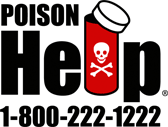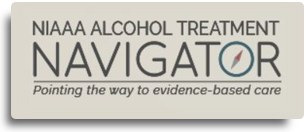Surgeon General's Advisory on Protecting Youth Mental Health
In a new Surgeon General's Advisory, U.S. Surgeon General Dr. Vivek Murthy is calling for immediate action to address the nation's youth mental health crisis.
The Surgeon General's Advisory on Protecting Youth Mental Health (PDF - 1.0 MB) lays out a series of recommendation that individuals, families, community organizations, social media companies, governments, and others can take to improve mental health for children and young adults.
Opioid Crisis
HRSA is ready to help combat the opioid epidemic. Learn how we are supporting our grantees in affected communities throughout the U.S. Visit the Opioid Crisis webpage.
Integrating Behavioral Health with Primary Medical Care
Integrated behavioral health results when a team of providers, including physicians, nurse practitioners, behavioral health clinicians, community health workers, home visitors, and other health care providers, work together to address patient needs to achieve quality outcomes for every individual in care. Safety net providers are utilizing a wide range of models to achieve integration, including care manager models, behavioral health clinician brief interventions, and models that support fully integrated behavioral/primary care health staff.
Browse models and other resources in HRSA's Integrated Behavioral Health Resource Library for resources across many different health topics, clinical practices, and settings. You will find articles on organizational readiness, assessment tools, workforce, and more.
Patients receive high quality primary care with behavioral health services to help them cope with issues such as stress, depression, substance use disorders, and problems resulting from living with a chronic physical health condition.
Why integrate behavioral health with primary care?
Behavioral health and physical health are closely connected. When we include behavioral health care in a primary medical care setting, we:
- Reduce stigma and discrimination;
- See cost benefits; and
- Promote improved patient outcomes.
How do HRSA programs integrate behavioral health with primary care?
HRSA has a “no wrong-door approach” to behavioral health services. We emphasize the availability of a highly skilled, professionally diverse and trusted workforce. The health care team provides screening, direct services and referrals in systems of care designed to address behavioral health concerns.
Specific programs that integrate behavioral health with primary care include:
Health Center Program — Health centers deliver care to the nation’s most vulnerable individuals and families, including people experiencing homelessness, agricultural workers, residents of public housing, and the nation’s veterans. More than 28 million people rely on a HRSA-funded health center for affordable, accessible, coordinated, comprehensive, and patient-centered care, with a wide range of medical, dental, behavioral, and patient services.
- There are nearly 1,400 HRSA-funded health centers operating approximately 12,000 service delivery sites nationwide.
- Approximately 93% of our health centers provide mental health counseling and treatment.
- 67% of health centers provide substance abuse services.
- Resources for behavioral health integration into primary care
Ryan White HIV/AIDS Program provides a comprehensive system of HIV medical care, medication, and essential support services for low-income people living with HIV who are uninsured or underserved. The Ryan White HIV/AIDS Program (RWHAP) funds grants to states, cities/counties, and local community-based organizations to provide HIV care and treatment services to people living with HIV to improve health outcomes and reduce HIV transmission among hard to reach populations. RWHAP understands the critical need for behavioral health services; an estimated 10 to 28 percent of people living with HIV have co-occurring substance abuse disorders and mental illnesses.
2018 Ryan White data reports 11.7% of clients served by the Ryan White HIV/AIDS program have received mental health services from a RWHAP provider. RWHAP ensures that recipients have access to behavioral health services either directly or through coordination with recipients providing these services. In addition, through the RWHAP Part F Special Projects of National Significance Program, innovative models of HIV care and treatment are developed that integrate behavioral health approaches with HIV primary care to respond to emerging needs of PLWH.
Health Workforce Training Programs — The Graduate Psychology Education and Behavioral Health Workforce Training and Education programs fund schools to develop and operate training programs. These programs prepare psychologists, psychiatrists, social workers, licensed professional counselors, occupational therapists, community health workers and peers to work in an environment that integrates behavioral health with primary medical care, focusing on underserved areas and populations. Area Health Education Centers work across disciplines to improve the health of underserved communities through provider education.
Health Professions Scholarship and Loan Repayment Programs — The National Health Service Corps (NHSC) works to build healthy communities by providing financial support to health care providers dedicated to working in areas with limited access to care. The NHSC Loan Repayment Program supports behavioral health practitioners, including psychiatrists, clinical psychologists, clinical social workers, licensed professional counselors, marriage and family therapists, psychiatric physician assistants, and psychiatric nurse specialists.
The Nurse Corps awards scholarships and loan repayment to nurses, nursing students, and nurse faculty. By supporting these nurses, we build healthier communities across the country—especially in areas of greatest need.
Maternal and Child Health Programs provide training and technical assistance to front-line providers, such as home visitors, community health workers, and primary care clinicians, on best practices for screening for mental health and substance use issues, as well as brief interventions and referral to treatment. Some programs screen and refer perinatal women for trauma, depression, and substance use; guide families with infants and young children on parenting; and screen children for developmental disorders.
Other programs improve the quality of school-based health care services, including school mental health systems. Still others offer advanced leadership training in neurodevelopmental disabilities, adolescent health, and developmental/behavioral pediatrics. Finally, Maternal and Child Health works at the systems and policy levels to develop and disseminate best practices and guidelines for preventive services for women’s health, as well as health supervision guidelines  that emphasize healthy child psychosocial development and provide a foundation for identifying children and adolescents with developmental and behavioral issues.
that emphasize healthy child psychosocial development and provide a foundation for identifying children and adolescents with developmental and behavioral issues.
Federal Office of Rural Health Policy (FORHP) currently funds programs that conduct policy-relevant rural health research and analysis of policy issues affecting rural communities, including behavioral health. The Rural Health Research Centers funded by FORHP have published and disseminated technical assistance material through Rural Health Research Gateway  . The Community Health Gateway
. The Community Health Gateway  , also funded by the Federal Office of Rural Health Policy, has information about evidence-based models of rural health interventions, as well as innovative approaches to behavioral health service delivery. The Community Health Gateway includes topics such as mental health
, also funded by the Federal Office of Rural Health Policy, has information about evidence-based models of rural health interventions, as well as innovative approaches to behavioral health service delivery. The Community Health Gateway includes topics such as mental health  and integrated models
and integrated models  in rural communities.
in rural communities.
Federal Resources
HHS Office for Civil Rights — Learn how the Health Insurance Portability and Accountability Act of 1996 (HIPAA) applies to mental health and substance use disorder information, see Information Related to Mental and Behavioral Health, including Opioid Overdose for professionals and for consumers.















